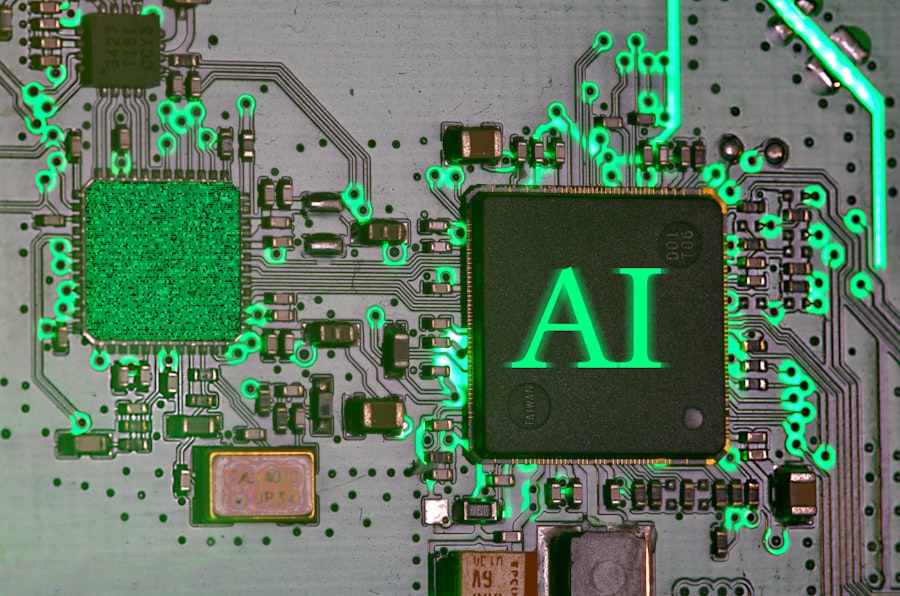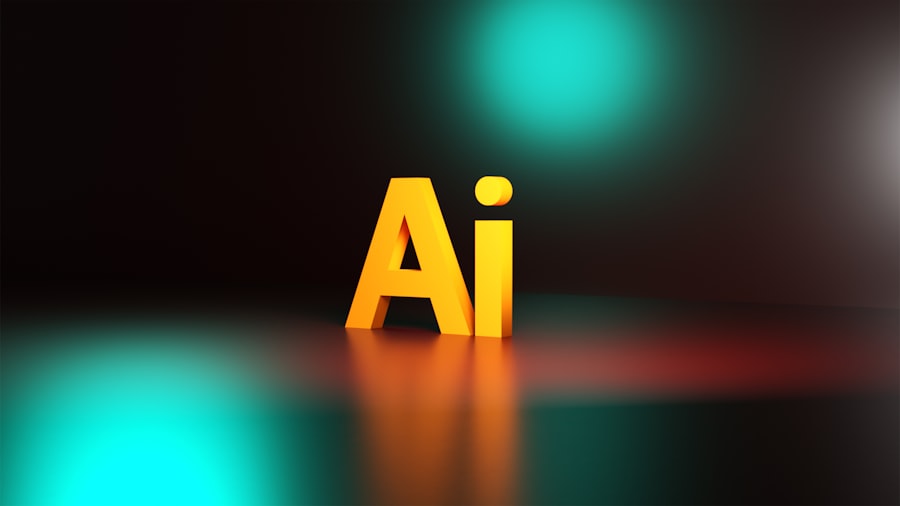Artificial Intelligence (AI) has emerged as a transformative force in various sectors, fundamentally altering the landscape of work. As you navigate through this era of rapid technological advancement, it becomes increasingly important to understand how AI is reshaping job markets and the nature of employment itself. From automating mundane tasks to enhancing decision-making processes, AI is not just a tool; it is a catalyst for change that can redefine your career trajectory and the skills you need to thrive.
The impact of AI on jobs is multifaceted, presenting both opportunities and challenges. While some fear that AI will lead to widespread job loss, others argue that it can create new roles and enhance existing ones. As you delve deeper into this topic, you will discover the nuances of how AI influences employment, the skills required in an AI-driven world, and the ethical considerations that accompany these changes.
Understanding these dynamics is crucial for anyone looking to navigate their career in an increasingly automated environment.
Key Takeaways
- AI is revolutionizing the job market, impacting the way we work and the skills required for various roles.
- Pros of AI in the job market include increased efficiency, productivity, and the potential for new job creation.
- Cons of AI in the job market include job displacement, potential loss of human touch, and the need for upskilling and reskilling.
- Automation is leading to job displacement in certain industries, requiring workers to adapt and acquire new skills.
- Upskilling and reskilling opportunities are essential for workers to remain competitive and relevant in the age of AI.
Pros of AI in the Job Market
One of the most significant advantages of AI in the job market is its ability to enhance productivity.
For instance, in industries such as manufacturing and logistics, AI-driven robots can handle assembly lines or inventory management, freeing up human workers to engage in problem-solving and innovation.
This shift not only increases efficiency but also fosters a more stimulating work environment where you can apply your unique skills. Moreover, AI can lead to improved decision-making processes. With access to vast amounts of data, AI systems can analyze trends and provide insights that would be impossible for humans to discern alone.
This capability can empower you to make informed decisions based on real-time data analysis, enhancing your effectiveness in roles ranging from marketing to finance. As organizations adopt AI technologies, they often find that their teams become more agile and responsive, ultimately leading to better outcomes for both employees and employers.
Cons of AI in the Job Market

Despite the numerous benefits that AI brings to the job market, there are significant drawbacks that cannot be overlooked. One of the primary concerns is the potential for job displacement. As AI systems become more capable, there is a growing fear that many roles, particularly those involving routine tasks, may become obsolete.
This reality can create anxiety for you and your peers as you contemplate the future of your careers in an environment where machines increasingly take over human functions. Additionally, the integration of AI into workplaces can exacerbate existing inequalities. Not everyone has equal access to the education and training necessary to adapt to new technologies.
If you find yourself in a position where your skills are outdated or irrelevant due to AI advancements, it may be challenging to secure employment in a competitive job market. This disparity can lead to a widening gap between those who can leverage AI effectively and those who cannot, raising important questions about fairness and opportunity in the workforce.
Automation and Job Displacement
| Year | Automation Rate (%) | Job Displacement Rate (%) |
|---|---|---|
| 2010 | 10 | 5 |
| 2015 | 15 | 7 |
| 2020 | 20 | 10 |
Automation is perhaps the most visible manifestation of AI’s impact on jobs. As machines take over tasks traditionally performed by humans, entire industries are undergoing significant transformations. You may have noticed this trend in sectors like retail, where self-checkout systems have reduced the need for cashiers, or in customer service, where chatbots handle inquiries that once required human agents.
While these advancements can lead to cost savings for businesses, they also raise concerns about job security for many workers. The fear of job displacement is not unfounded; studies have shown that certain occupations are at a higher risk of being automated than others. For example, roles that involve repetitive tasks or predictable patterns are more susceptible to being replaced by AI technologies.
As you consider your career path, it is essential to assess whether your current role is at risk and what steps you can take to future-proof your career against automation-related disruptions.
Upskilling and Reskilling Opportunities
In light of the challenges posed by automation and job displacement, upskilling and reskilling have become critical strategies for navigating the evolving job market. Upskilling involves enhancing your existing skills to keep pace with technological advancements, while reskilling focuses on acquiring new competencies altogether. As you face the realities of an AI-driven workplace, investing in your education and professional development will be vital for maintaining your employability.
Many organizations recognize the importance of fostering a culture of continuous learning and are increasingly offering training programs to help employees adapt to new technologies. You may find opportunities through online courses, workshops, or company-sponsored training sessions that focus on developing skills relevant to AI and automation. By proactively seeking out these opportunities, you can position yourself as a valuable asset in a rapidly changing job landscape.
AI and Job Creation

While concerns about job displacement are valid, it is essential to acknowledge that AI also has the potential to create new jobs and industries. As technology evolves, entirely new fields emerge that require human expertise alongside AI capabilities. For instance, roles in data analysis, machine learning engineering, and AI ethics are becoming increasingly important as organizations seek to harness the power of AI responsibly.
Moreover, as businesses adopt AI technologies, they often require skilled professionals to implement and maintain these systems. This demand creates opportunities for you to enter emerging fields that may not have existed a decade ago. By staying informed about industry trends and aligning your skills with market needs, you can position yourself at the forefront of this new wave of job creation.
AI and Job Quality
The introduction of AI into the workplace also raises questions about job quality. While some roles may be eliminated or transformed by automation, others may see improvements in working conditions as a result of AI integration. For example, by automating dangerous or physically demanding tasks, AI can enhance workplace safety and reduce the risk of injury for employees like yourself.
Additionally, AI can contribute to better work-life balance by streamlining processes and reducing workloads. With AI handling routine tasks, you may find that you have more time for strategic thinking and collaboration with colleagues. This shift can lead to greater job satisfaction and overall well-being as you engage in more meaningful work rather than being bogged down by mundane responsibilities.
Ethical and Social Implications of AI in the Job Market
As you consider the implications of AI on jobs, it is crucial to address the ethical and social dimensions of this technology. The deployment of AI systems raises questions about bias, accountability, and transparency. If not carefully managed, AI algorithms can perpetuate existing biases present in training data, leading to unfair treatment of certain groups in hiring processes or performance evaluations.
Furthermore, as organizations increasingly rely on AI for decision-making, there is a growing concern about accountability when things go wrong. If an automated system makes a mistake that affects employees or customers, who is responsible? These ethical dilemmas highlight the need for clear guidelines and regulations governing the use of AI in the workplace.
As you engage with these issues, it becomes essential to advocate for responsible practices that prioritize fairness and equity in an increasingly automated world.
Government Policies and Regulations
To address the challenges posed by AI in the job market, government policies and regulations play a crucial role. Policymakers must consider how best to support workers affected by automation while fostering innovation and economic growth. This balance requires thoughtful approaches that promote education and training initiatives while also ensuring that workers’ rights are protected.
You may find that governments are beginning to implement policies aimed at facilitating workforce transitions in response to technological changes. These initiatives could include funding for retraining programs or incentives for companies that invest in employee development.
The Future of Work in the Age of AI
As you look ahead to the future of work in an age dominated by AI, it is clear that adaptability will be key. The job market will continue to evolve as technology advances, requiring you to remain agile in your career planning. Embracing lifelong learning will be essential as new skills become necessary for success in an increasingly automated world.
Moreover, collaboration between humans and machines will likely define many workplaces of the future. Rather than viewing AI as a competitor, consider how it can complement your abilities and enhance your contributions. By fostering a mindset that embraces change and innovation, you can position yourself as a leader in your field who thrives amidst technological disruption.
Balancing the Pros and Cons of AI in the Job Market
In conclusion, navigating the impact of AI on jobs requires a nuanced understanding of both its advantages and disadvantages. While automation presents challenges such as job displacement and ethical concerns, it also offers opportunities for increased productivity, job creation, and improved work quality. As you engage with these dynamics, it becomes essential to advocate for policies that support workers while embracing lifelong learning as a means of adapting to change.
Ultimately, finding a balance between harnessing the benefits of AI and addressing its challenges will be crucial for shaping a future where technology enhances rather than diminishes human potential in the workplace. By staying informed and proactive in your career development, you can navigate this evolving landscape with confidence and resilience.
In the ongoing debate about whether artificial intelligence will take away jobs, it’s essential to weigh both the pros and cons. On one hand, AI can lead to increased efficiency and productivity, potentially creating new job opportunities in tech-driven industries. On the other hand, there is a legitimate concern about job displacement, particularly in sectors that rely heavily on routine tasks. For a deeper understanding of how AI might impact the job market and the economy, you can explore a related article on this topic by visiting How Wealth Grows. This resource provides valuable insights into the economic implications of AI and how it might shape the future workforce.
FAQs
What are the pros of artificial intelligence taking away jobs?
– Increased efficiency and productivity in various industries
– Automation of repetitive and mundane tasks
– Potential for new job creation in AI development and maintenance
What are the cons of artificial intelligence taking away jobs?
– Displacement of workers leading to unemployment
– Potential for widening income inequality
– Loss of human touch and empathy in certain industries
– Dependence on technology leading to vulnerabilities and security risks
